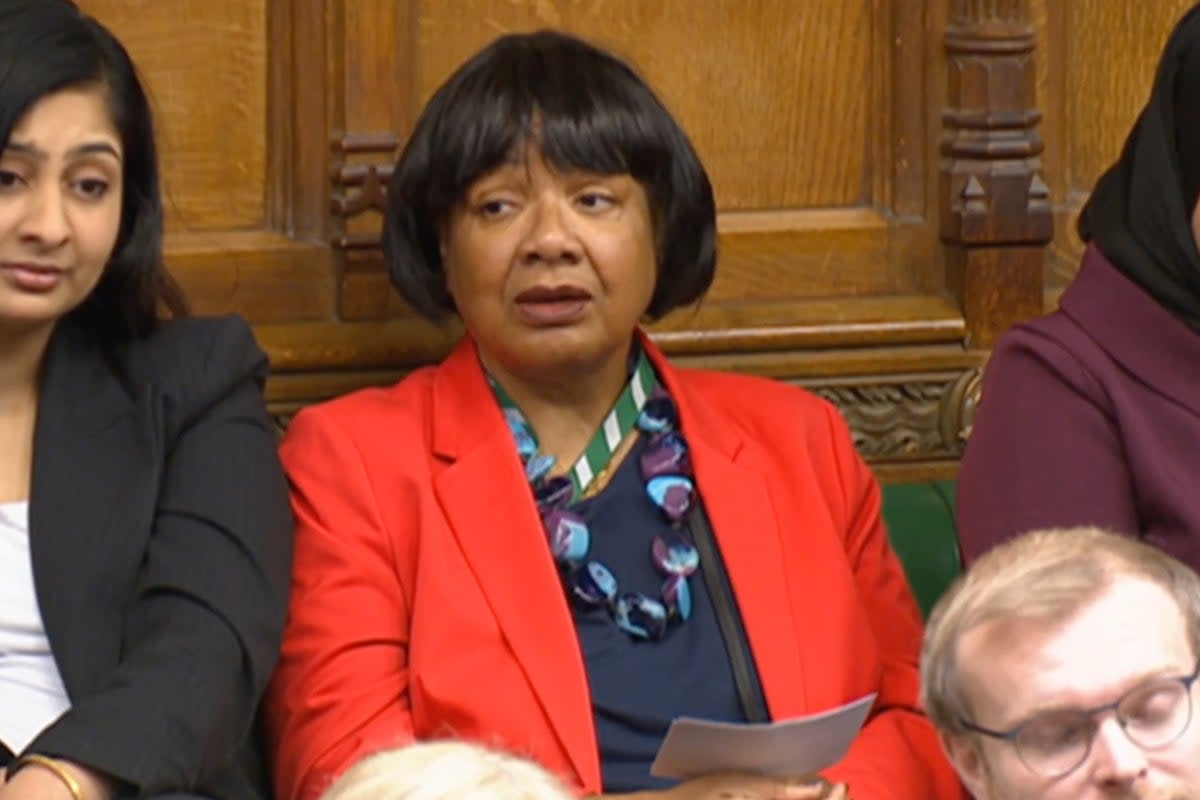Voices: Yes, the Tories are outrageously racist and sexist – but Labour is guilty too

How many politicians does it take to correctly identify racism and sexism? Quite a few, it seems, especially if a very rich political donor is involved.
The delay in calling out abuse is unconscionable. In fact, the first and concerted effort from No 10’s loyal spokespeople was to downplay and excuse the abuse, misrepresenting it as “rudeness” for which there had been a “fulsome apology”. In fact, it was racism – for which there has been no apology.
It should be absolutely clear that the reported remarks from Frank Hester were both outrageously racist and sexist. Reportedly saying, “you just want to hate all Black women because she’s there”, meaning me, meets the textbook definition of racism and sexism.
They are the hatred of discrimination against Black people and women because they are Black or because they are women. Most people can see that immediately.
As many people will know, this is not the first time I have been subjected to both types of abuse. The important feature of this episode is not really that they are connected to a very large Tory donor. I am afraid long-term experience teaches me that the Tory party has long been a source of whipping up racism in this country, including directed at me personally.
Don’t believe me? In the 2017 general election, Tory poster vans criss-crossed our cities and towns with the slogan, “Do you really want Diane Abbott as Home Secretary?” along with a picture of me. No other member of the Shadow Cabinet was treated in that way, apart from Jeremy Corbyn himself.
But the current situation is worse. It is clear that this is a politically bankrupt government clinging to office against the wishes of the large majority of the population. Their hoped-for Budget bounce actually showed the Tory vote slipping below 20 per cent in at least one poll. They have nothing positive to offer.
For some time, the Tory political campaign has been reduced to the fatuous slogan of “stop the boats”, a failed policy that it is an unworkable, immoral and illegal measure. It is a classic campaign of distraction from the terrible effects of the government’s own policies.
The government response to the inevitable and justified charge of promoting racism is to claim, bizarrely, that this is a “post-racial” society. In effect, it is the outlandish assertion that the various iterations of this government have abolished racism. The same government that gave us austerity that deepened inequality, the hostile environment, poster vans telling immigrants to “Go Home!”, a Brexit that was said to control immigration – and now the Rwanda policy.
The propaganda claim to have moved on from racism becomes ever more shrill in the face of the evidence all around us. And then, every once in while a minor character like Lee Anderson or Frank Hester wanders in from stage right to remind us about the real character of the Tory party. It is an impossible task to pretend you are a party led by modern-day Abraham Lincolns, when most of your base agrees with Ukip, the Brexit Party or Reform UK.
So, the Tory reluctance to call out racism and sexism is shocking, but hardly surprising. But the position of the current leadership of the Labour Party is disappointing – it seemed equally reluctant at the outset to call out either racism or sexism. In fact, a number of Labour statements were issued, and interviews given where neither word was mentioned. Instead, the entire focus was on the demand that the Tories give Hester back his money, which is surely not the primary point in this case.
This approach has its own, shallower roots. The Forde Report itemised shocking levels of racism and sexism from within the Labour Party, again much of it directed against me personally. There has been no accountability, or even apology, for the shocking revelations in Martin Forde’s report.
Recently, many of our leading politicians have expressed concerns about the rise in extremism and threats. But their target seems to be mainly peaceful protesters they disagree with. If they genuinely want to address threats and extremism, they should look closer to home.


